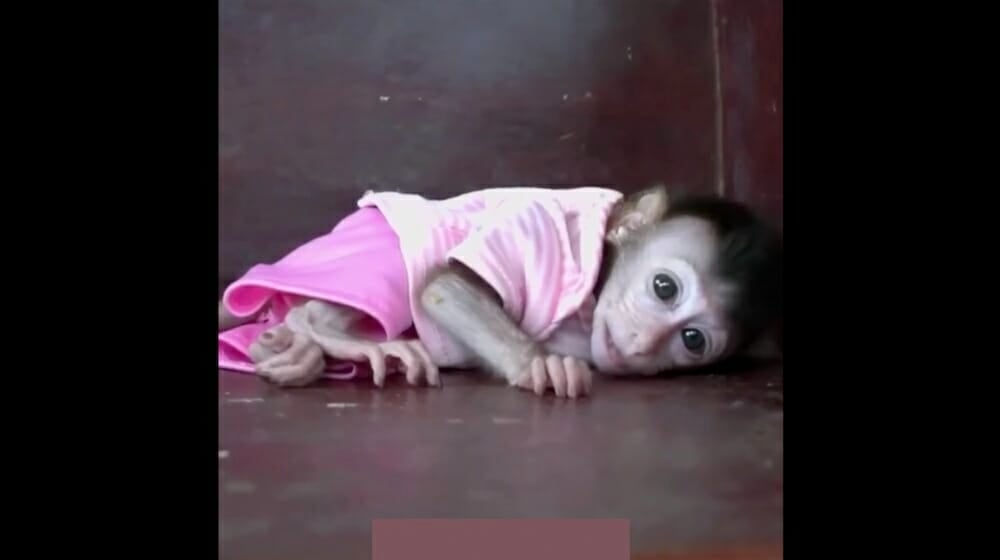In the YouTube video, tiny infant macaques dressed in colorful, doll-like outfits sit fidgeting adorably in a row as their keeper puts rice cakes in front of them, chiding the animals when they reach to nibble before her command. Similar videos from other channels show clothed “pet” monkeys “dancing,” spinning in circles and playing with toys as their seemingly “loving” owners talk to them softly, smile, or laugh.

The reality for these monkeys when the camera turns off is much darker. Lady Freethinker and Action for Primates sent an investigator to meet with several popular social media-channel owners in Cambodia, and what we learned was shocking — animals forced into cramped, barren wire cages with no access to food and water, and displaying stress-based behaviors.
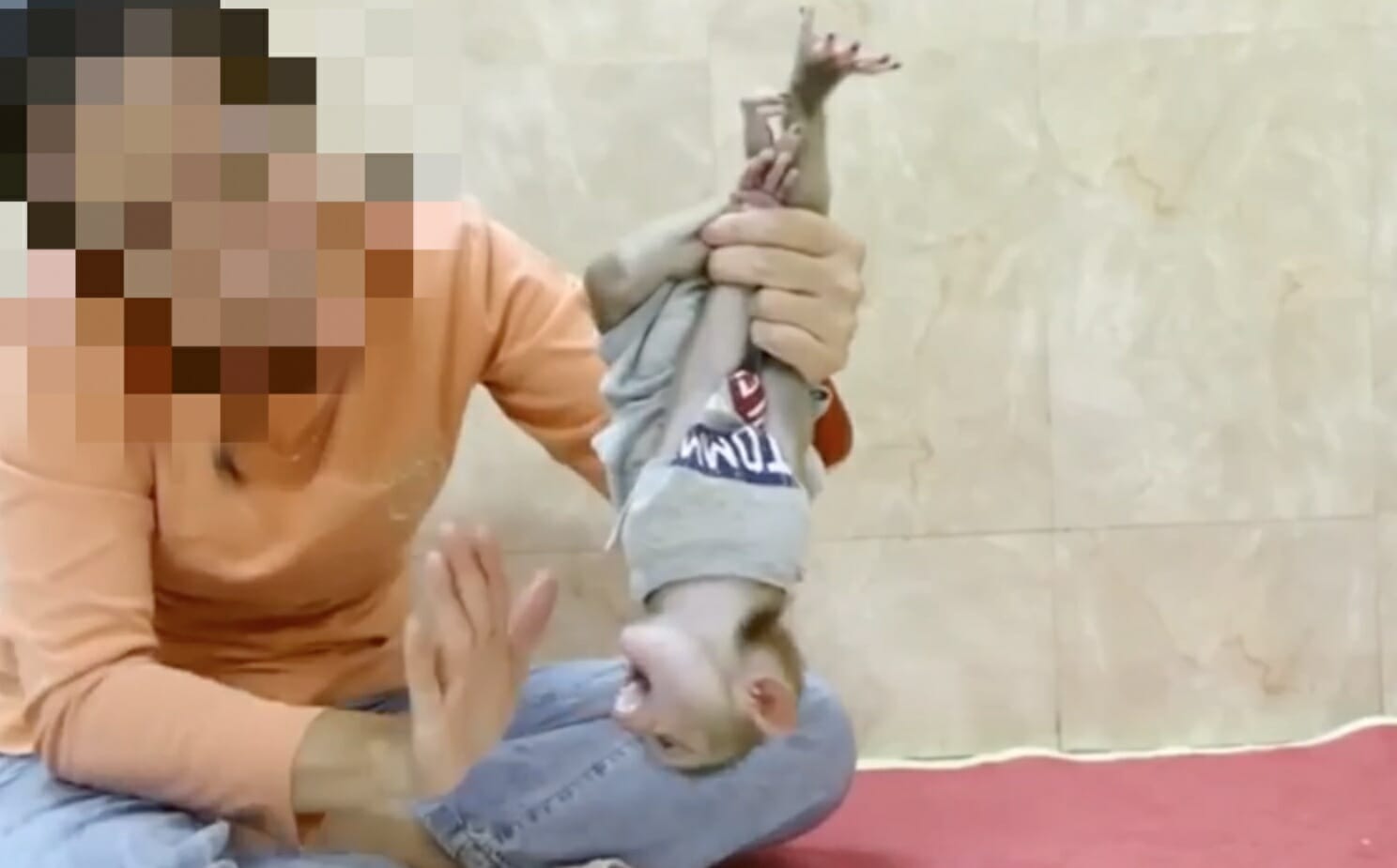
Sometimes, the online videos even show cruelty outright. One channel we investigated had videos with deplorable methods of “discipline,” including hitting and biting the macaques or hanging them upside down.
It’s illegal to own macaques, and most other wild animals, as pets in Cambodia. But the unlawful practice has proliferated, given a lack of law enforcement and the easy availability of wild monkeys, captured from the forests of Cambodia, according to AFP.
“Forcibly removing and depriving infant monkeys of their mothers and raising them in captivity in unnatural conditions is extremely cruel and will result in abnormal behavior and development and lead to severe psychological and physical problems,” said AFP Co-founder Sarah Kite.
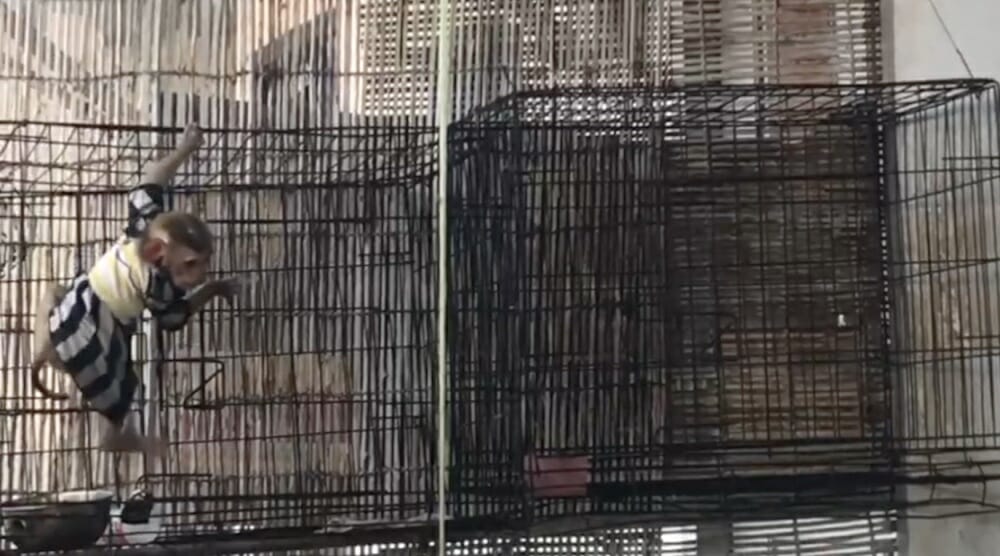
At one site, the investigator documented five young monkeys kept in a wire cage with a wire floor without any enrichment or platforms and witnessed the monkeys sucking their fingers – a clear coping mechanism when faced with stress, separation, or loss, according to experts.
The YouTuber told our investigator that she made mistakes in the beginning, saying that when the monkeys were “not listening,” she got angry and received complaints from the viewers. Videos from this channel show the poster hanging a macaque over a balcony and threatening to drop him, biting macaques on the tail or feet, hitting a macaque in the face and knocking over a macaque.
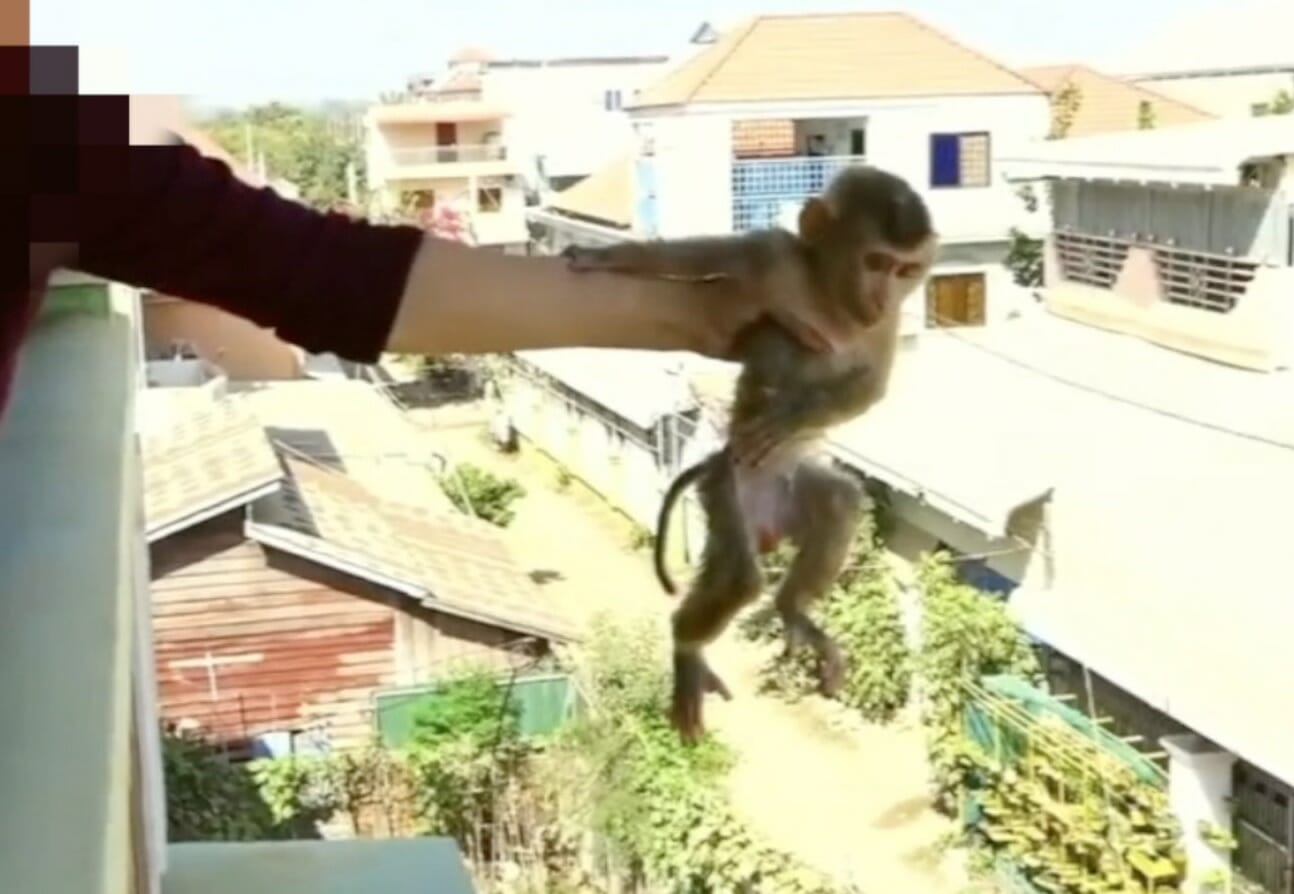
Pig-tailed and a long-tailed macaque at another site also were kept in a barren wire cage in a filthy area of the residence, with the owner telling the investigator that they were fed milk, fruit, jelly, and candy. We have also documented videos uploaded by this channel that show an infant macaque cruelly dumped into a chair and filmed crying for the camera and a macaque whose arms were so tightly confined in clothing that the monkey was forced to walk upright. Bipedal walking, or walking on the hind legs, is not natural for monkeys and can lead to damage to joints and muscles.
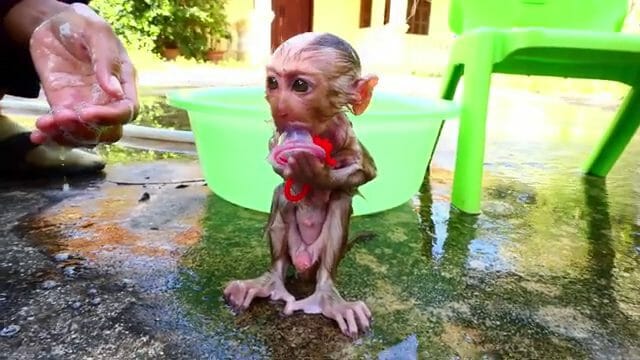
While these videos may appear “cute” to some, they are cruel, irresponsible, and dangerous. Nor are they confined to just the three popular posters visited by our investigator: Videos uploaded to social media platforms by other posters in Cambodia, as documented by our investigators, show baby monkeys forced into abnormal and cruel conditions in which they exhibit clear distress, including screaming and crying.
Other posters have filmed seemingly endless bathing (which compromises the health of macaques’ skin), forced bipedal walking, and macaques with their hands and feet wrapped to prevent visible finger-sucking – which also prevents the infants from grabbing things, a natural behavior, and interferes with their balance.

Some of the posters also filmed videos in which they touched or focused their cameras on the genitals of the macaques.
Cambodia’s illegal “pet” trade also has been directly tied to traffickers ripping infants from their mothers in the wild – which may include injuring or killing their troop members who rush to the babies’ aid – and selling them to people who have little or no knowledge of what the animals need to thrive.
The macaques’ unmet needs can lead to dangers for humans, said Dr. Nedim Buyukmihci, AFP’s veterinary advisor. “As these monkeys get older, particularly as they reach sexual maturity, they will invariably become aggressive toward people and often cause serious injuries,” he said.
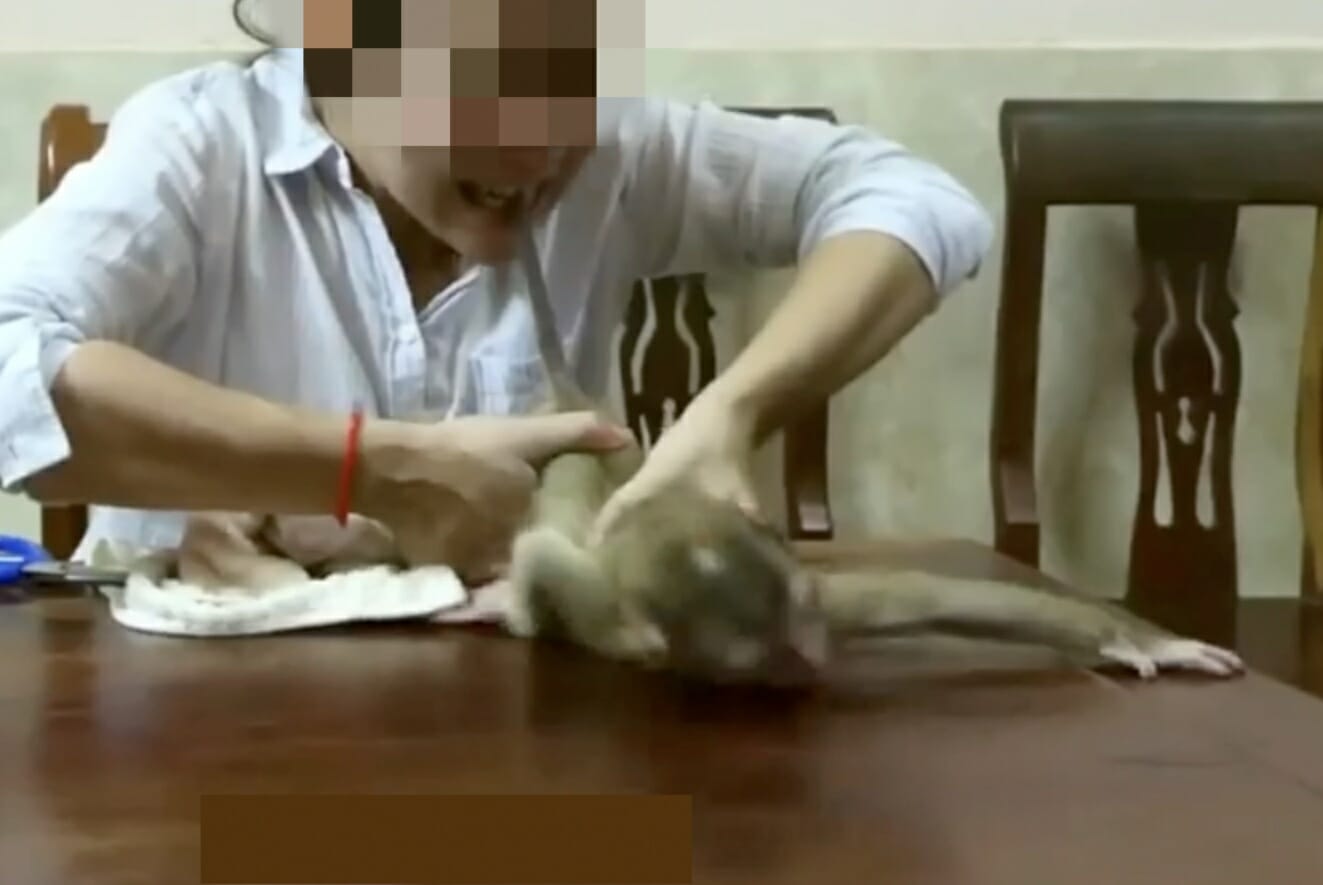
One such tragic incident happened to a 71-year-old resident of Phnom Penh who was attacked and hospitalized by a 4-year-old macaque he had raised from infancy, according to the Phnom Penh Post. The man kept the monkey chained to a tree and suffered severe bite wounds one morning when he approached the captive animal. Local authorities then killed the monkey.
Contact with wild monkeys — especially under conditions where animals are highly stressed – also can lead to cross-species transmission of various infectious microorganisms, resulting in zoonotic diseases, Buyukmihci said.
“There is also a potential danger to the people because monkeys can carry disease-causing organisms not necessarily harmful to the monkeys,” Buyukmihci said. “These organisms, however, may be harmful to people and can be shed into the environment when the monkeys are stressed.”
He added that the monkeys in the videos documented for this investigation “are clearly stressed, extremely frightened in some situations, or obtunded (dulled and failing to engage normally with their environment,” said.
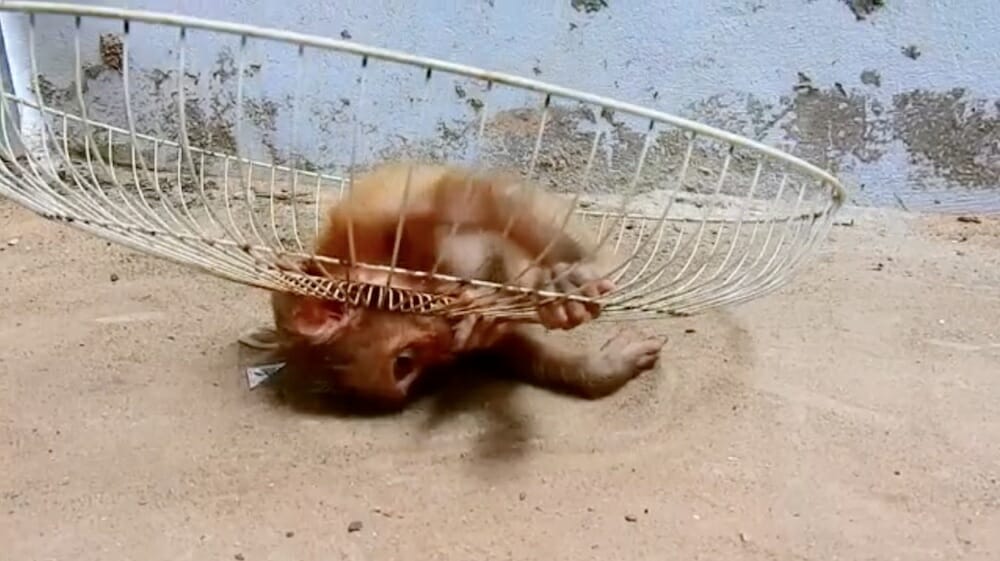
Keeping these incredible animals captive in cages, dressing them like human children, and forcing them to perform unnatural stunts for social media views is inhumane, irresponsible, and dangerous – and it must stop.
Please sign our petition urging Cambodian officials to crack down on illegal macaque ownership as well as people subjecting monkeys to abuse and cruelty, confiscate any illegally held captive monkeys, and ensure they are sent to a reputable sanctuary where they can live the rest of their lives in peace.
SIGN: End Horrifying Cruelty to Cambodian Baby Monkeys Forced to Perform in ‘Cute’ Online Videos
Additionally, please email the Cambodian ambassador in your country. You can find their contact information here: https://www.mfaic.gov.kh/EmbassyCambodiaMissionAbroad
We are grateful to Stop Monkey Abuse Asia for providing information and support during our investigation.







